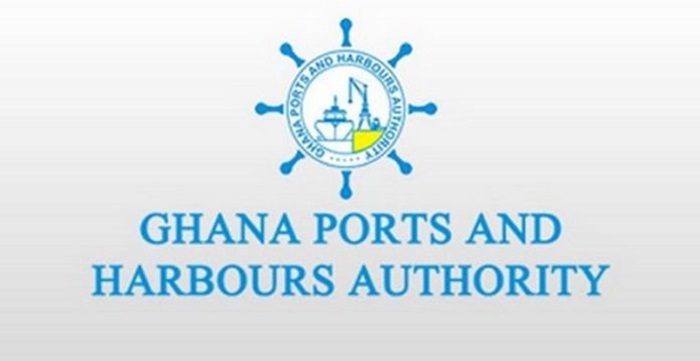The Ghana Ports and Harbours Authority (GPHA) has stated that a group of former casual workers threatening a demonstration over alleged unpaid severance compensation have no valid case and are only misleading the public.
A spokesperson for the aggrieved workers, Moses Kwanayah, said over 4,000 individuals were affected by a World Bank program to restructure port operations between 2001 and 2002.
He claimed after Supreme Court ruling and later addressed by the President, these workers are yet received a severance package commensurate with their service.
But GPHA claims this group resurfaces during election year with similar threats just to coerce the government into paying compensation after the Supreme Court has resolved the matter in 2014.
Responding to the planned demonstration, the GPHA described the group’s claims and threats as baseless.
They emphasized that while demonstration is a constitutional right, they come with corresponding legal and statutory responsibilities.
The Supreme Court’s decisions remain unchallenged, and the GPHA cautioned that the port area is a security zone thus any attempt to disrupt operations could have serious security consequences.
Below is the full statement by the GPHA:
Press Release
THREAT OF PUBLIC DEMONSTRATION, PICKETING AND RELATED MATTERS BY SOME “EX-CASUAL WORKERS” OF GPHA: POSITION OF GPHA
Following threats of an impending public demonstration and picketing at the premises of Ghana Ports and Harbours Authority made by some ex-casual workers through videos and interviews circulating in the social and main media, ostensibly on grounds of an alleged failure or refusal or neglect by the Authority to pay a certain compensation sum to them upon a declaration of redundancy some 20 years ago, the Ghana Ports and Harbours Authority (hereinafter, “the GPHA/Authority”) wishes to state the facts and clarify all issues relating to the above so that the public is not misinformed.
The facts are as follows:
- In 2001, the government of Ghana, upon advice from the World Bank, decided to reform the Ports to improve service delivery and to take advantage of regional growth in shipping. In doing so, a large share of Port operations, which were hitherto handled by the Port Authority were ceded to private operators with the needed resources to provide quality service to customers.
- The Authority, having ceded most of its operations to private operators, had to reduce its staff numbers immediately. Some of these staff opted to join some of the private operators, while others elected to go home. Not all of them were permanent staff though: some were permanent staff, while others were casual staff. Yet, each of these personnel was given huge sums of money as compensation.
- For the permanent staff, two options were tabled for their consideration: (a) An early voluntary retirement, and (b) compulsory retirement. The beneficiaries considered the package for early voluntary retirement for permanent workers as more attractive that it was over-subscribed to the extent that no worker was compulsorily relieved of his or her responsibility as a condition for the second option.
- As has been stated, in the maritime industry and in the ports in particular, two categories of workers exist, namely; (a) Permanent workers who are employed with established Conditions of Service, and (b) Casual workers (Dockers) whose employment is daily. In other words, they only work and get paid when there is a job available to be executed for that day. This category of workers at the time were paid cash after work on a daily basis and therefore had no rights to claims for permanency of work or any long service or retirement benefits no matter how long they worked in the ports as casual labourers.
- During the restructuring exercise, on the issue of casual workers, to which this group alleged as “ex-workers of GPHA” belonged, the Authority, out of its magnanimity decided to pay them a certain sum out of goodwill (a handshake in our parlance) for their service. Please note that the Authority was not under any obligation to do so as compared to permanent workers. Aside that, a well-structured Port casual labour company was formed to assimilate them seamlessly to continue their work as casual dockers.
- However, the group after receiving the “handshake” was not satisfied and instituted an action at the High Court against the Authority. The matter travelled to the Supreme Court and they lost. However, not satisfied, they invoked the review jurisdiction of the Supreme Court and again lost. (See Bonney & Ors (No.l) v. Ghana Ports and Harbours Authority (No.l) [2013- 2014] SCGLR 436 and Bonney & Ors (No.2) v. Ghana Ports and Harbours Authority (No.2) [2013-2014] SCGLR 457.
- It is instructive to note that this group almost always surfaces in every election year with the intention to blackmail the Authority to pay to them what they do not deserve even though finality was brought to the matter by the Supreme Court as far back as May 29, 2014.
- We would like to indicate that GPHA adheres strictly to labour laws and regulations concerning employee severance benefits. Each case of separation from service is handled with due diligence and in accordance with the terms and conditions outlined in the employment contracts and relevant labour legislation. The recent assertions made by the aforementioned group and their threats of intended demonstration are baseless and not supported by factual evidence.
- In conclusion, in as much as demonstrations are constitutional rights, they come with equal constitutional and other statutory obligations. The judgements of the Supreme Court have not been over-turned. We would like to remind the members of this group that the Port enclave is a security zone and, any attempt to unduly disrupt operations will have security implications.
Please be advised.
Thank you.

